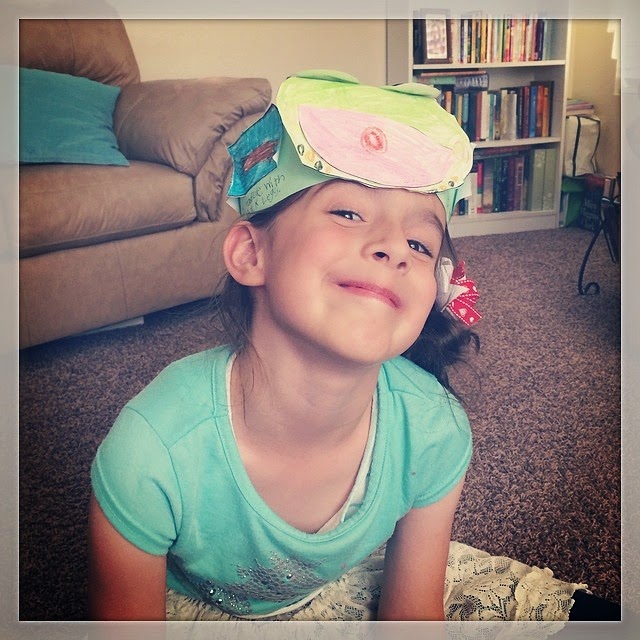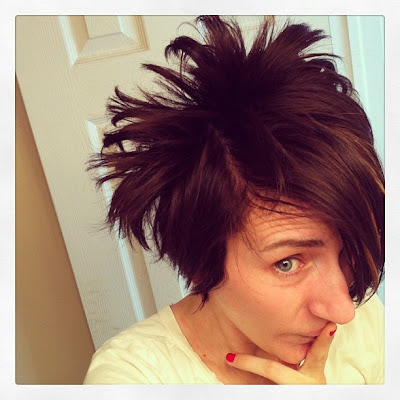What Kind Of Friend Will You Be?
From the moment she walked in the door, I knew something was wrong.
My Lilly Mae threw open the door with gusto, tossed her Hello Kitty backpack on the couch, and snarled a, "Hi, Mom," at me. She stomped up the stairs and slammed the bathroom door. I was left standing in the living room--perplexed--and wondering why my seven-year-old so often acts like a teenager.
Eventually she came back downstairs. "What's wrong?," I asked.
"I really don't want to talk about it right now," she replied.
I obliged, grabbing some Angry Birds crackers (because those are tasty!) and a juice box for her for an after-school snack. I followed her to our basement family room and turned on The Princess Bride. (Her current favorite.) "I'm here for you, whenever you are ready to talk," I said.
After a full tummy, a lot of patience, gentle coaxing, and plenty of "As you wishes," I got Lilly to open up to me. What she revealed simultaneously boiled my blood and made my heart sad:
"My best friend was mean to me."
Now, it should be noted that this "best friend" is frequently mean to my daughter--calling her names, ignoring her at lunchtime, and telling her her hair looks stupid. Time and time again--and usually after this child has broken her heart--I have attempted to explain to Lilly that "good friends don't treat us badly." I tried a new tactic.
I said to Lilly we were going to make a list of what it means to be a good friend; what good friends do, the way good friends act. It was easy to brainstorm ideas. Good friends are kind, good friends are forgiving, good friends love us unconditionally, etc. Naturally, once that list was complete, we talked about the opposite. The dreaded "Not-So-Good-Friend." Lilly's conclusion was that, "Good friends don't call us mean names, and good friends don't hit us. We should walk away from not-so-good friends and find a good friend to play with."
But here's the most important thing, dear ones--the item lastly discussed, that pivotal point worth emphasizing to my young and impressionable daughter:
What kind of friend will you be?
I admonished her to always, always be the good friend. To find the one who felt left out, the one who was being teased, the one who was lonely. Befriend those with lots of friends; befriend the friendless. The good friend is the one who loves another as God loves us all.
Because the fact of the matter is we have a choice. People can be cruel, hurtful, and judgmental. We can choose to forgive them. People can be caddy. We can choose to be kind. People can be thoughtless and stubborn. We can choose to love them. In murky seas of sadness, the good friend will offer the lifeboat. In pain, a good friend is the balm. In unintentional error, a good friend understands your preciousness, and that human beings are perfectly fallible.
(I hope to always be the balm and the boat to my children.)
As the gangly, awkward, frizzy-haired, brace-faced young girl, afraid of the loneliness of the crowded lunchroom, I made a choice. And it was one I tucked inside myself and locked in my heart for all these years. I chose to love and to try and to accept.
We have a choice. We can choose to be the good friend.
And we can choose to be the good...
As we wish.
My Lilly Mae threw open the door with gusto, tossed her Hello Kitty backpack on the couch, and snarled a, "Hi, Mom," at me. She stomped up the stairs and slammed the bathroom door. I was left standing in the living room--perplexed--and wondering why my seven-year-old so often acts like a teenager.
Eventually she came back downstairs. "What's wrong?," I asked.
"I really don't want to talk about it right now," she replied.
I obliged, grabbing some Angry Birds crackers (because those are tasty!) and a juice box for her for an after-school snack. I followed her to our basement family room and turned on The Princess Bride. (Her current favorite.) "I'm here for you, whenever you are ready to talk," I said.
After a full tummy, a lot of patience, gentle coaxing, and plenty of "As you wishes," I got Lilly to open up to me. What she revealed simultaneously boiled my blood and made my heart sad:
"My best friend was mean to me."
Now, it should be noted that this "best friend" is frequently mean to my daughter--calling her names, ignoring her at lunchtime, and telling her her hair looks stupid. Time and time again--and usually after this child has broken her heart--I have attempted to explain to Lilly that "good friends don't treat us badly." I tried a new tactic.
I said to Lilly we were going to make a list of what it means to be a good friend; what good friends do, the way good friends act. It was easy to brainstorm ideas. Good friends are kind, good friends are forgiving, good friends love us unconditionally, etc. Naturally, once that list was complete, we talked about the opposite. The dreaded "Not-So-Good-Friend." Lilly's conclusion was that, "Good friends don't call us mean names, and good friends don't hit us. We should walk away from not-so-good friends and find a good friend to play with."
But here's the most important thing, dear ones--the item lastly discussed, that pivotal point worth emphasizing to my young and impressionable daughter:
What kind of friend will you be?
I admonished her to always, always be the good friend. To find the one who felt left out, the one who was being teased, the one who was lonely. Befriend those with lots of friends; befriend the friendless. The good friend is the one who loves another as God loves us all.
Because the fact of the matter is we have a choice. People can be cruel, hurtful, and judgmental. We can choose to forgive them. People can be caddy. We can choose to be kind. People can be thoughtless and stubborn. We can choose to love them. In murky seas of sadness, the good friend will offer the lifeboat. In pain, a good friend is the balm. In unintentional error, a good friend understands your preciousness, and that human beings are perfectly fallible.
(I hope to always be the balm and the boat to my children.)
As the gangly, awkward, frizzy-haired, brace-faced young girl, afraid of the loneliness of the crowded lunchroom, I made a choice. And it was one I tucked inside myself and locked in my heart for all these years. I chose to love and to try and to accept.
We have a choice. We can choose to be the good friend.
And we can choose to be the good...
As we wish.





Comments
Post a Comment
I LOVE hearing from you! Thanks for making my day brighter with your comments! I mean it. (Now go have yourself a Diet Coke!)